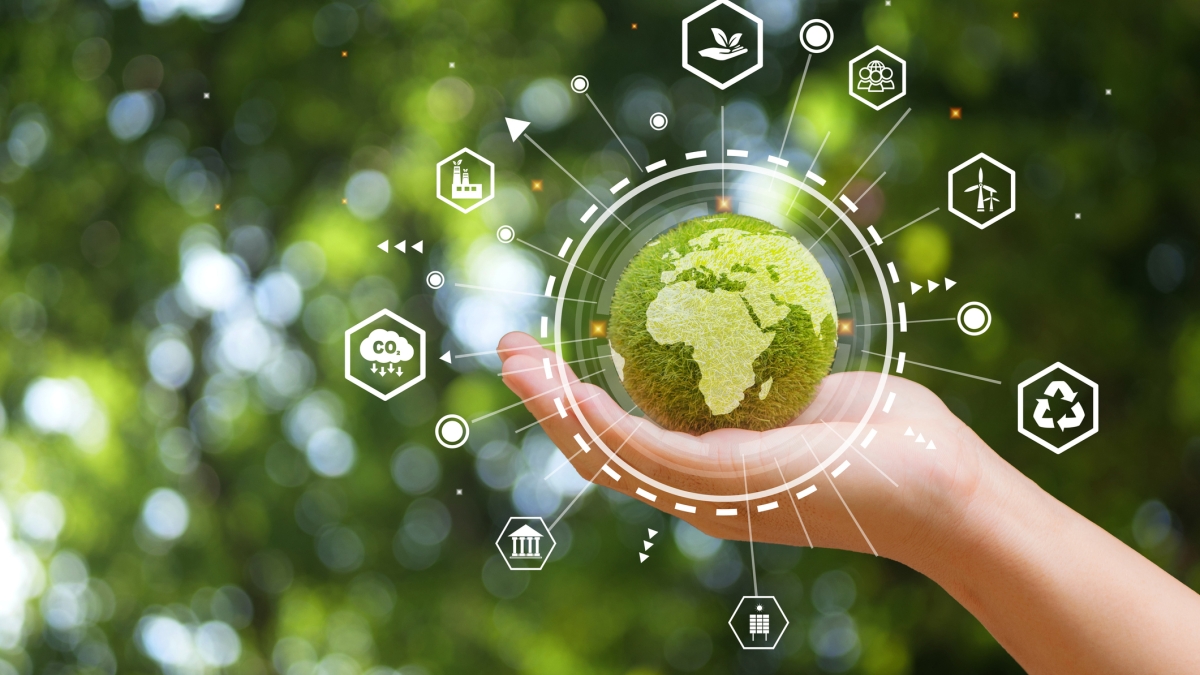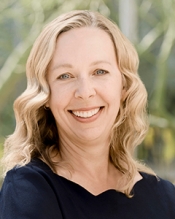Education’s role in global sustainability has typically focused on the science behind the solutions, but increasingly, education systems and organizations are starting to prepare students — starting at the K–12 level — for managing a world with limited global resources.
At Arizona State University, the Julie Ann Wrigley Global Futures Laboratory and other interdisciplinary units, including ASU’s Mary Lou Fulton Teachers College, are taking on these challenges.
For example, the Mary Lou Fulton Teachers College is increasing its global sustainability academic offerings. Faculty are contributing to K–12 and higher education initiatives and are expanding research in global sustainability education.
Iveta Silova, professor and associate dean of global engagement in the Mary Lou Fulton Teachers College, talks about how education can play a role in addressing sustainability challenges.
Note: Answers have been edited for length and clarity.
Question: How can educators address global sustainability?
Answer: The common assumption is that increasing access to quality education will inevitably lead to stronger environmental awareness and greater techno-scientific innovations necessary to address sustainability challenges. However, scientific knowledge and technical solutions alone are not sufficient for addressing sustainability challenges. Nor do they automatically translate into behavior change, mindset shifts or climate action.
What we see is a major disconnect between the growing knowledge about climate change and the failure of global and local social norms, economic systems and political institutions to respond boldly or quickly enough.
This is where education can play a key role in addressing global sustainability challenges. At the policy level, this means reformulating education policy frameworks to prioritize planetary well-being and ecological justice over the current focus on economic growth, competition and development. At a practical level, this entails mainstreaming sustainability, environmental and climate education in school and university curricula.
It means educational practice and professional development of educators in order to ensure that learners of all ages — and at all levels — have the knowledge, skills and sense of agency needed to cope with the consequences of the climate crisis while learning to live and act more sustainably in the future.
Q: What are you learning about global sustainability education from your perspective as a Fulbright Scholar in Finland?
A: Unlike the United States, where climate education is only starting to become part of the school curricula … teaching about climate change is already a part of the Finnish education system. Environmental and climate education is included in the national core curriculum for basic education across subjects. In addition to the core curriculum, there are also a number of environmental education initiatives and organizations in Finland, which support youth groups and educators with professional development programs, materials and research.
I have really enjoyed learning about the experiences of Finnish colleagues in this area, including forest schools, outdoor education, multispecies pedagogies and other initiatives that recognize human lives as inextricably interconnected with those of all other beings, elements and forces on earth.
Q: How else is your work intersecting with other initiatives?
A: ASU has united world-renowned scientists, scholars and innovators as part of the Julie Ann Wrigley Global Futures Laboratory, which is aimed at helping to create a habitable future for all humankind. Mary Lou Fulton Teachers College faculty and staff are taking the lead on some education-focused Global Futures Laboratory projects.
Our certificate program in environmental education, led by Professor Mo Walters, continues to grow. Most courses are offered both online and on campus, attracting students across disciplines to study environmental education and develop the environmental literacy that fosters community leadership strategies and provides opportunities to practice environmental education pedagogies.
We are also developing new programs to meet the needs of school systems and community groups.
Q: How is Mary Lou Fulton Teachers College expanding sustainability education in the Phoenix area?
A: In collaboration with our universitywide colleagues, Mary Lou Fulton Teachers College faculty have been involved in establishing the Regional Center of Expertise on Education for Sustainable Development, serving the Phoenix area. It is part of the global RCE Network recognized by UNESCO and the United Nations University Institute for the Advanced Study of Sustainability.
Mary Lou Fulton Teachers College and the Global Futures Laboratory, in collaboration with ASU’s Knowledge Exchange for Resilience, have been actively involved in establishing the center and strengthening the links with the community. We have done that in conjunction with a wide range of community groups, including research labs, government, businesses, civil society organizations and educational organizations.
The center formally launched in January 2023. Though it is based at ASU, it involves the participation of a growing number of local school districts, municipalities, nonprofit groups and national organizations.
Q: How can K–12 educators address global sustainability?
A: Ensuring that younger generations at the K–12 level learn ecological literacy, as well as strong critical thinking skills and the ability to leverage technology responsibly, is an obligation and an opportunity for those of us who support the work of educators and learning-focused organizations.
At ASU, this process of inquiry aligns with a framework we call Principled Innovation, which was originally developed at Mary Lou Fulton Teachers College and is now ASU’s newest design aspiration. The decisions and actions taken today affect how our society develops in the future, and that is why we must leverage education and collective networks as our society confronts the climate crisis and ensures more sustainable futures.
Top photo from iStock
More Local, national and global affairs
A record 9 ASU students awarded US Department of State’s Critical Language Scholarship
Nine Arizona State University students have been selected for the highly competitive Critical Language Scholarship, or CLS, program — an initiative of the U.S. Department of State that aims to…

Putting hope above hate at antisemitism conference
Hatred and hope were the overarching themes of the “Rising Above Together” conference hosted April 11 by the Anti-Defamation League in partnership with Arizona State University.Hatred: According to…

Arizona PBS is now free to stream for Prime Video viewers in the US
Arizona PBS is now available for streaming on Amazon Prime Video. A new partnership between PBS and Amazon brings the station’s primary, high-definition broadcast channel, along with the 24/7 PBS…



